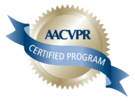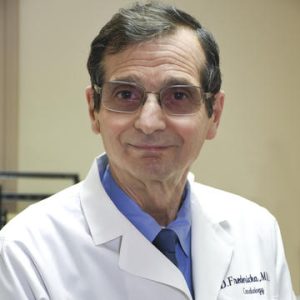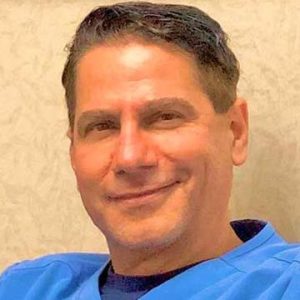At Insight Hospital & Medical Center Trumbull, our comprehensive heart and vascular services are focused on preventing and treating heart disease. Our heart team is trained to diagnose chest pain quickly and begin treatment as soon as possible to help prevent, or even reverse, muscle damage to the heart. The hospital has recently achieved Chest Pain v6 Accreditation, which is the highest-level Chest Pain Accreditation available through the American College of Cardiology.
The hospital has achieved Chest Pain v7 Accreditation, which is the highest-level Chest Pain Accreditation available through the American College of Cardiology.
As an accredited facility, expert care begins the moment someone with chest pain enters the emergency room, and continues through diagnosis, treatment, rehabilitation, and follow up.



Trumbull Regional offers Coronary Calcium Scoring, a convenient and non-invasive way of evaluating whether you may be at an increased risk for a heart attack.
Cardiac & Vascular Services
Cardiothoracic Surgery Services
When open heart surgery offers the best treatment solution, our cardiovascular and thoracic surgeons are well equipped to perform procedures such as:
- Aortic Surgery
- Atrial Fibrillation Surgery
- Atrial Septal Defect Repairs
- Aortic Root Replacement
- Coronary Artery Bypass Surgery
- Heart Valve Repairs and Replacement
- Pulmonary Procedures
- Re-Operative Coronary Surgery
- Thoracic Aortic Procedures
Diagnostic Cardiac & Vascular Services
- Arterial Studies
- Cardiac CTA
- Nuclear Stress Testing
- Cardiac Stress ECHO
- Carotid Ultrasound
- Echocardiogram (ECHO)
- Electrocardiogram (EKG)
- Venous Studies
Heart Rhythm Management Services
Heart Rhythm Disorder known as an arrhythmia, is characterized by abnormal heartbeat — too fast, too slow or irregular. Doctors use tests such as an electrocardiogram (ECG or EKG), electrophysiology studies or a Holter monitor, which records heart activity over a period of time, to diagnose arrhythmias. We provide comprehensive arrhythmia treatment, from lifestyle-modification assistance to highly complex surgical treatment.
- Ablation Therapy
- Cardiac Recorder
- Cardioversions
- Defibrillator
- Electrophysiology Testing
- Holter Monitoring
- Implantable Devices
- Pacemaker
- Tilt Table Testing
Invasive Cardiology Services
- Angiography and Angioplasty
- Diagnostic and Interventional Procedures
- Endografts for Abdominal Aortic Aneurysms (AAA)
- Heart Catheterizations
- Inferior Vena Cava (IVC) Filters
- Renal Access Procedures
- Stenting of Coronary and Peripheral Arteries including Renal and Carotid Arteries
- Transesophageal Echocardiography
Vascular Services
- Aneurysm Repair
- Angiogram/Angioplasty/Stenting
- Carotid Endarterectomy
- Deep Vein Thrombosis Treatment
- Endovascular Repair
- Hemodialysis Access Procedures
- Peripheral Artery & Vascular Disease
- Renal Artery Disease Treatment
- Varicose Vein Treatment
Heart Failure Expertise
Congestive heart failure (CHF) occurs when the heart can no longer pump enough blood to meet the body’s needs. Different from a heart attack, heart failure is a chronic, long-term condition that prevents the heart from functioning effectively. Treatment options include medical management, risk-factor management, minimally invasive cardiac catheterization and surgery.
Click here to learn more about the Congestive heart failure clinic.
Cardiac Rehabilitation
Our Cardiac Rehabilitation Program is designed to help people with cardiovascular problems recover faster and improve their quality of life. The program includes exercise, education, counseling and support for patients and their families. Our program is the only program in the Mahoning Valley certified by the American Association of Cardiovascular and Pulmonary Rehabilitation. For more information, call 330-841-9947.
Heart Attack Symptoms In Women
Heart disease is the leading cause of death in women. Although the most common heart attack symptom for both men and women is chest pain or discomfort, women are more likely than men to experience atypical symptoms such as shortness of breath, nausea, and back or jaw pain.
Other heart attack symptoms include:
- Chest discomfort, which can feel like uncomfortable pressure, squeezing, fullness or pain in the center of your chest. The feeling can either last for more than a few minutes or can go away and come back.
- Discomfort or pain in other areas of the upper body, such as in one or both arms, the back, neck, jaw or stomach.
- Shortness of breath with or without chest discomfort.
- Other signs may include breaking out in a cold sweat, nausea or vomiting, or lightheadedness.
For more information on Early Heart Attack Care (EHAC), CLICK HERE.
Hands-Only CPR
Sudden cardiac arrest is the leading cause of death with nearly 400,000 cases occurring every year in the U.S. About 89% of people who suffer an out-of-hospital cardiac arrest die.
Research shows that Hands-Only CPR (without mouth-to-mouth breaths) performed by a bystander is just as effective in the first few minutes of sudden cardiac arrest outside of a hospital.
No matter where you are, if you witness a teen or an adult suddenly collapse, you need to act fast — a delay of just a few minutes could be the difference between life and death. So check out this video from the American Heart Association, and remember these two easy steps:
- Call 911, or have someone else call immediately and keep your phone on speaker mode.
- Push down hard and fast in the center of the chest at a rate of 100-120 compressions per minute.
- A song like Bee Gees’ disco hit “Stayin’ Alive” can help you keep pace.
Elizabeth Carol Prokop Testimonial
Sandra Cunningham Testimonial
Thomas Crowley Testimonial
Glenn McClellan Testimonial
Fay and Mark Robison Testimonial
Daniel Rock Testimonial
Michael Swiatkwic Testimonial
Bernie C. Cardiac Journey
Joseph Wilson- Cardiac Testimonial
Rose Wainwright- Cardiac Testimonial
Barbara Busko- Cardiac Testimonial
Marcia Markworth- Cardiac Testimonial
John Tutoki Cardiac Testimonial
Our Team

Shyam Bhakta, MD
Interventional Cardiology

David Fredericka, MD,
Cardiology

Ali Kimyaghalam, MD
Surgery, Vascular surgery

Mazen Mahjoub, MD
Diagnostic Cardiology

Fadi Naddour, MD
Interventional Cardiology

Eugene Vitvitsky, MD
Vascular surgery

Larry Woods, DO
Cardiology

